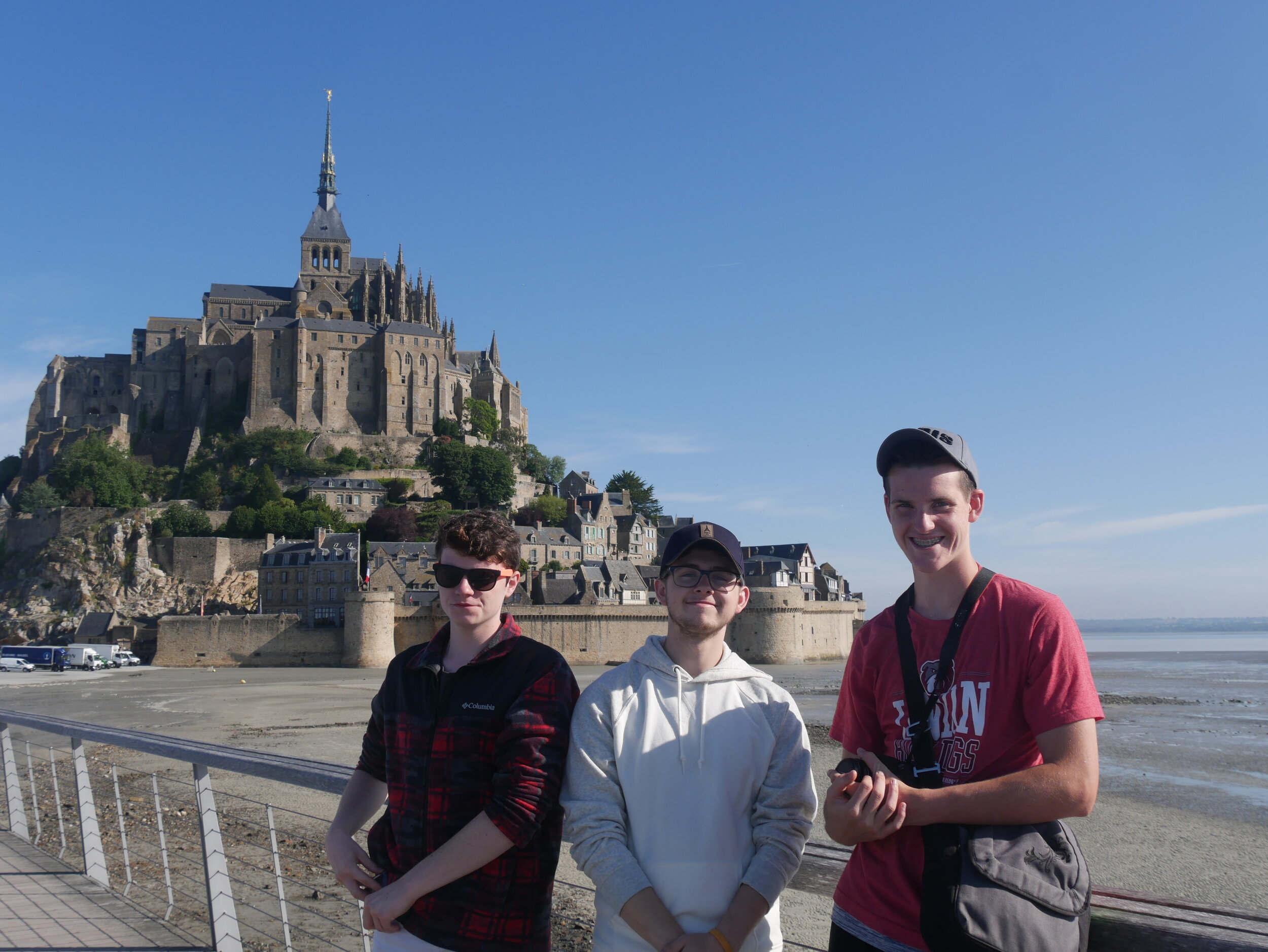Photo credit: Kailey Sullivan
To be honest, we spend much of our time in Paris underground. This is because the metro system is so incredibly fast and efficient. But it makes the wonders we see above ground that much more special. (We also do a lot of walking, above ground.)
Some of my favorite moments as a tour leader are watching the expressions of our travelers as they first encounter some of these wonders. There is a particular corner where I like to skip ahead just a little so I can savor the expressions as the group rounds the corner and sees the magnificent Eiffel Tower towering above them in all its glory.
This last time, we had a professional violinist and francophile (I believe she minored in French) who had literally spent her entire life dreaming of being in Paris. She knows how to cook à la française, she speaks French, she’s played music by French composers…but had never set foot in France until now. As I watched everyone oohing and aahing at the tower, taking selfies and posing for photos, I turned around and saw her, just standing there weeping. She was here. After all those years of dreaming, hoping, imagining, she was here.
Is it possible to go through an entire European adventure and experience it merely on the superficial level? I suppose so, but I don’t know what it’s like. Nor do I want to.
That’s because I’m a firm believer in what I call wise travel. Wise travel is conscious travel, teachable travel, wonder-full travel. It’s allowing every moment to count for something — not just the iconic highlights like the Eiffel Tower, but also the moments that sneak up on you. Wise travel is the kind where you come away changed.
Changed how? For one thing, you learn more about your home country. Unless you are of the ultranationalist stripe that believes your country has nothing to learn from other countries, you learn that the opposite is oh so true. You also learn more about the country where you were raised — it’s strengths and weaknesses, beauties and blemishes. You learn there is not only more than one way to do something (like flush a toilet or turn on a light), but more importantly, how to look at the world and how to live on a daily basis.
Sitting on a Tuscan terrace overlooking a valley of vineyards and olive groves and enjoying a lovingly prepared Italian feast, it’s hard not to just stop and give thanks for this gift. This moment teaches you that there is in fact beauty all around you, even in your home setting, if you’re looking for it. The reason travel is so important is it takes you out of your zone of familiarity in order to get your attention.
Travel also has a way of dismantling the zeitgeist that the present moment is all that counts. Standing in an arena built for over 50,000 spectators almost 2,000 years ago will go a long way toward appreciating the ingenuity of Roman engineering. Ask any architect, which we had the privilege of doing on our last trip as we had one in our group, and he/she will tell you how much we owe the ancient Romans even today. Engaging the imagination makes all the difference as you put yourself in the time and place of those who have gone before, whose shoulders we stand on. You become more aware that you are a small link in a human chain spanning thousands of years, and learning from history, as they say, can inform our own future if we let it.
French author Gustave Flaubert said, “Travel makes one modest. You see what a tiny place you occupy in the world.”
It’s all about perspective. The more you travel, the more clearly you begin to see that place you occupy, however tiny, and you learn that learning never stops.
Would you like to join us on one of these life-changing adventures? Just leave your name and email address below and you’ll be among the first to hear about our 2020 10th anniversary adventures!


